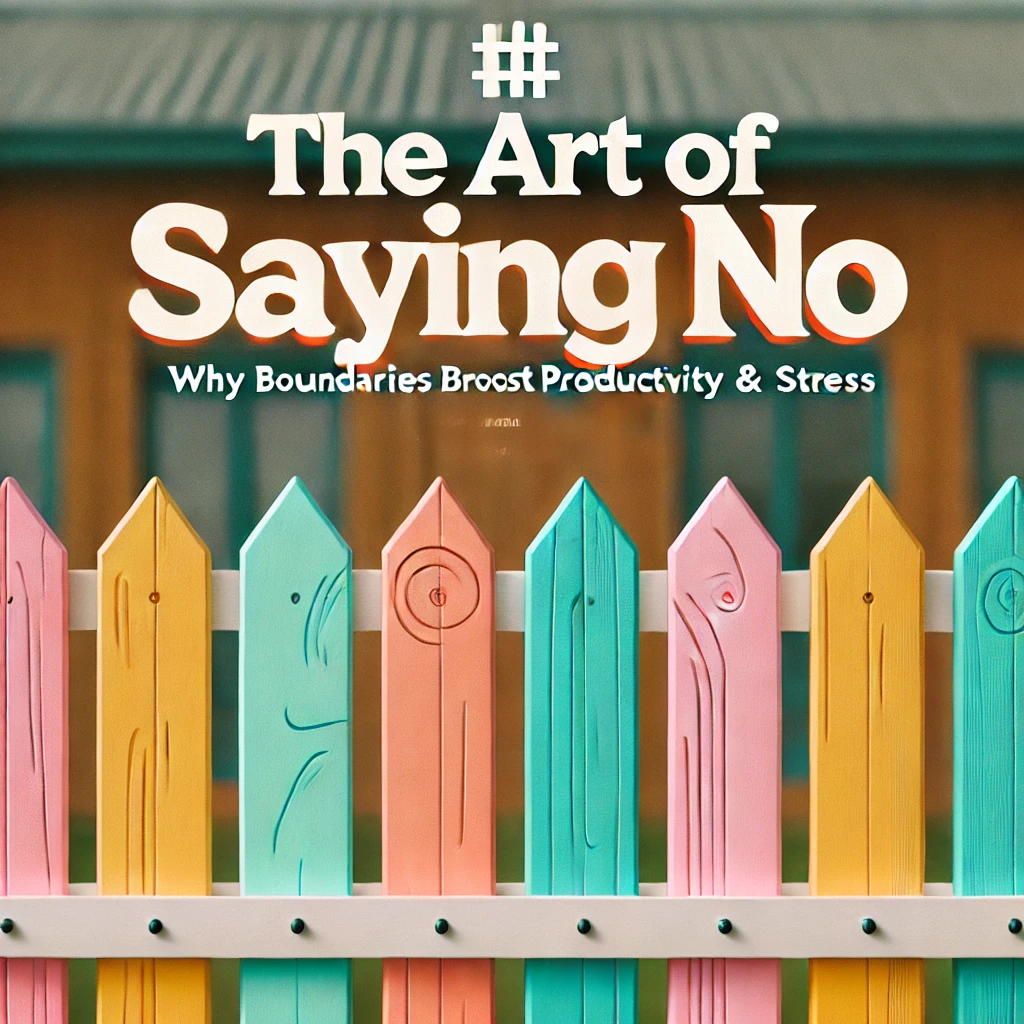In today’s world, busyness is often mistaken for productivity. We say “yes” to every request, fearing that saying “no” will make us seem unhelpful, lazy, or unmotivated. But in reality, saying yes too often leads to burnout, distraction, and decreased efficiency.
The most successful people—from CEOs to athletes to creatives—have one thing in common: they fiercely protect their time and energy.
Every time you say yes to something, you’re saying no to something else.
So, what if instead of overcommitting and stressing yourself out, you made strategic choices? Learning the art of saying no can help you reclaim control over your time and energy.
The Hidden Cost of Saying “Yes” Too Often
Many people struggle to set boundaries because they don’t realize the toll that saying “yes” takes on them.
Overcommitment Leads to Burnout
Constantly taking on tasks leaves no room for rest, creativity, or personal growth. Burnout doesn’t happen overnight—it’s a slow drain on your mental and physical well-being.
Lack of Focus = Poor Productivity
Jumping from task to task means you never get into deep focus. The more commitments you take on, the harder it is to prioritize and complete high-value work.
People-Pleasing Creates Stress & Anxiety
When you’re constantly worried about keeping others happy, you neglect your own needs. This creates resentment and stress, making you feel overwhelmed.
How Saying No Improves Productivity & Performance
Saying No Protects Your Time
Time is your most valuable resource. If you don’t protect it, others will take it from you.
- Time blocking: Schedule deep work sessions and refuse distractions.
- Eliminate unnecessary meetings: Not every meeting requires your presence.
- Delegate and outsource: You don’t have to do everything yourself.
Boundaries Reduce Stress & Overwhelm
By setting clear boundaries, you prevent burnout and preserve mental clarity.
- Decide what matters most: Focus on tasks that align with your goals.
- Say no without guilt: Your well-being is just as important as anyone else’s.
- Create buffer time: Leave space between commitments to prevent exhaustion.
Saying No Increases Focus & Efficiency
Productivity isn’t about doing more—it’s about doing the right things efficiently.
- Avoid multitasking: Do one thing at a time for better results.
- Use the 80/20 rule: Focus on the 20% of tasks that drive 80% of results.
- Turn off notifications: Social media and emails can wait.
How to Say No Without Feeling Guilty
Many people struggle with saying no because they don’t know how to communicate their boundaries effectively. Here’s how you can do it with confidence:
Use the 24-Hour Rule
Before committing to something, give yourself time to think. Instead of an immediate yes, say:
“Let me check my schedule and get back to you.”
This allows you to assess if it’s truly worth your time.
Have a “No” Script Ready
A prepared response makes it easier to decline politely. Try these:
“I appreciate the offer, but I can’t commit to this right now.”
“I’d love to help, but my schedule is full.”
“I’m prioritizing other projects at the moment.”
Offer an Alternative (If Appropriate)
If you don’t want to say a flat-out no, suggest another solution:
“I can’t do this, but I know someone who might be able to help.”
“I don’t have time now, but I’d be happy to revisit this in a few weeks.”
Set Clear Work Boundaries
- Turn off work emails after hours
- Say no to last-minute requests
- Protect your personal time
Remember, no is a complete sentence. You don’t need to over-explain or justify your decision.
Final Thoughts: Start Saying No Today
If you want to be productive, reduce stress, and create a life you love, start setting boundaries today. The ability to say no is not just about time management—it’s about self-respect.
- Take action now: Say no to one unnecessary request today.
- Reclaim your time: Protect your focus and energy.
- Prioritize what truly matters: Success isn’t about doing everything—it’s about doing the right things.
Your time is valuable. Use it wisely.
